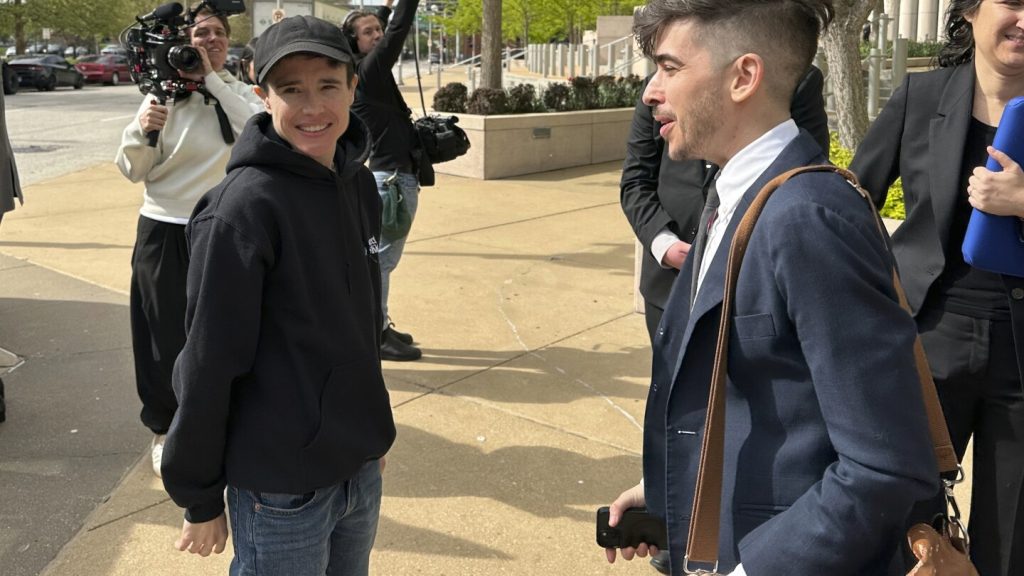A federal appeals court in St. Louis heard arguments regarding the reinstatement of Arkansas’ ban on gender-affirming care for minors. The ban, which was struck down last year as unconstitutional, would prohibit doctors from providing gender-affirming hormone treatment, puberty blockers, or surgery to anyone under 18. The American Civil Liberties Union challenged the law on behalf of four transgender youths and their parents, arguing that it infringes on parents’ rights to make decisions about their children’s medical care.
The case is part of a larger backlash against transgender rights, with at least 24 states adopting laws restricting or banning gender-affirming medical care for transgender minors. The hearing on the Arkansas law drew a packed audience, including actor Elliot Page, who filed a brief asking the court to uphold last year’s ruling. Arkansas’ deputy solicitor general argued that the law doesn’t discriminate based on sex because it bans the treatments for a specific purpose, stating that minors can still be prescribed testosterone for other reasons.
The full court of the 8th U.S. Circuit Court of Appeals heard arguments after a request by Attorney General Tim Griffin, potentially speeding up the case’s journey to the U.S. Supreme Court. The judges, mostly appointed by Republican presidents, questioned both sides on whether gender identity is fixed before the end of puberty and the justification for the ban. The ACLU argued that none of the banned treatments are prescribed before the onset of puberty, while the state noted that the Legislature set 18 as the cutoff age for a reason.
It is uncertain when the 8th Circuit will make a ruling on the case, with Chief Judge Lavenski Smith saying it will issue a decision “in due course.” The families challenging the law released a statement emphasizing the importance of access to care, while medical groups like the American Medical Association and the American Academy of Pediatrics have opposed the ban. The Justice Department also appeared before the court to oppose Arkansas’ ban, citing previous rulings allowing similar bans in other states to be enforced.
The state has defended the ban by calling gender-affirming care “experimental,” a claim refuted by clinical experience and scientific research. Appeals court rulings have allowed bans in Alabama, Kentucky, and Tennessee to be enforced, while judges have temporarily blocked similar bans in Idaho and Montana. Arkansas’ ban was enacted after the Legislature overrode a veto by the former Republican governor, Asa Hutchinson. Current Governor Sarah Huckabee Sanders, also a Republican, has expressed support for the ban and signed legislation making it easier to sue providers of such care for malpractice.


